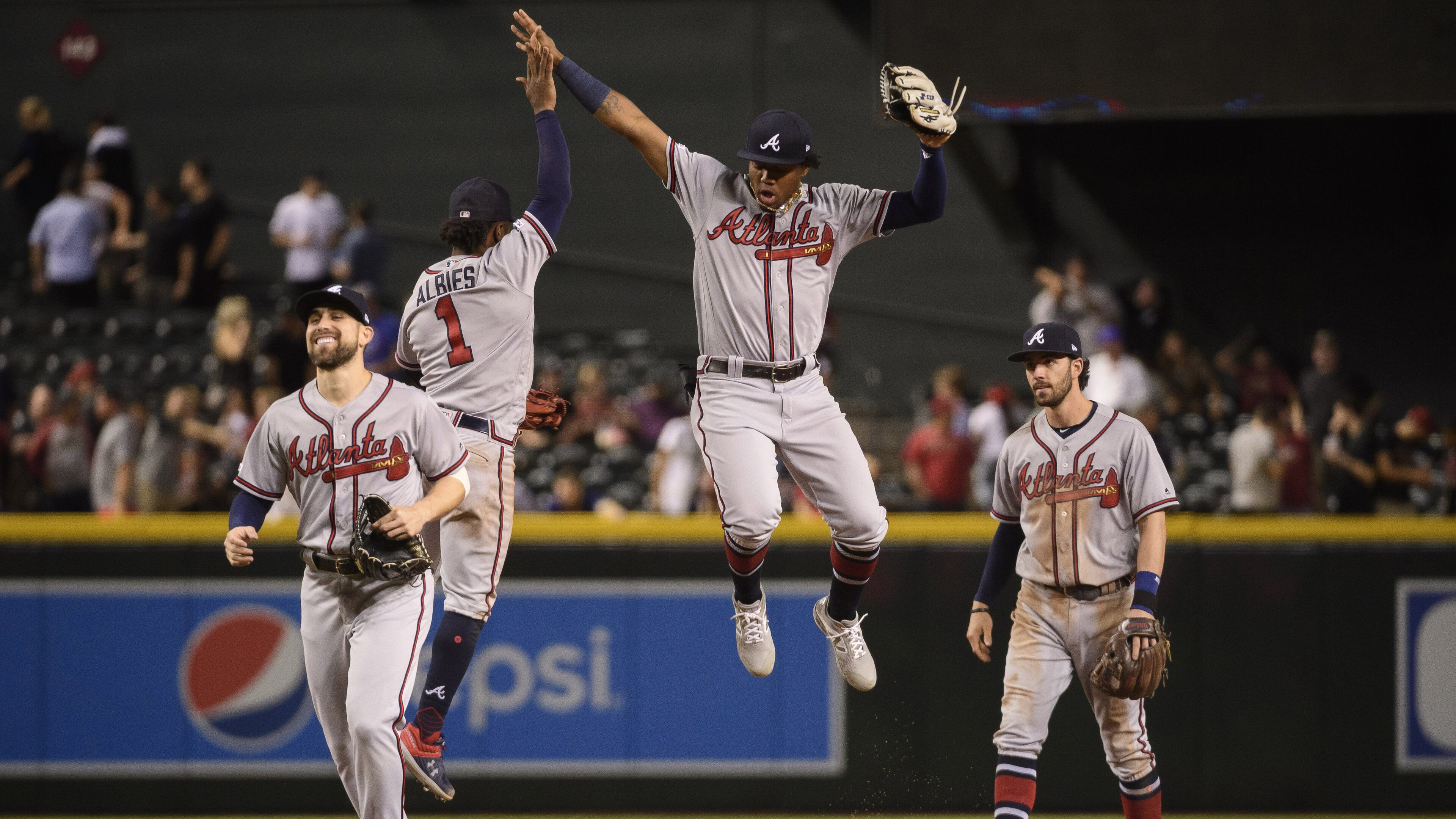The Braves got going in the desert. Was it a mirage?

Even a team that, just by looking around its clubhouse, has every reason to believe in its bona fides, needs a series like this. The Atlanta Braves were coming off three dispiriting losses in L.A., and Game 1 in Phoenix had been one of those tear-your-heart-out jobs — one out from victory, losing on a walk-off blooper. Beyond psychology, the reality of the standings was starting to show.
As of Friday morning, the Braves were four games behind Philadelphia in the National League East. That marked their biggest deficit since the end of the 2017 season, which was the last time this team considered itself a no-chancer. Last year they started hot, losing one of their first 10 series, and won the division pulling away. This year had been different. They’d won only 5 of 12 series, and they’d dropped the first of four games in Arizona against an opponent that swept them in Cobb County three weeks earlier.
Even if you're pretty sure you're as talented as just about anybody else, that faith gets tested when you peek at the standings and see 18-20 by your name. (And the schedule after Phoenix would get no easier — nine of the next 13 games are against St. Louis and Milwaukee, holders of the fifth- and third-best records among NL clubs.) We're within sight of Memorial Day; those standings are starting to mean a little something. Time to get going.
The Braves got going. Ronald Acuna, hitting leadoff again, won Friday's game with a booming home run. (He hits no other kind.) On Saturday, Kevin Gausman threw his best game in almost a month. On Sunday, Max Fried returned from his much-ado-about-not-much hand injury and worked five professional innings. The bullpen held for a third consecutive day, Luke Jackson finishing with a two-inning save.
You mightn’t have figured that mid-May would see Jackson closing and Sean Newcomb working as a set-up man — and working well; in 4-2/3 innings since being reassigned to relief, he has walked nobody — but here the Braves are. They’d slipped to 16-18 because the bullpen had been unreliable, sure, but also because the starters had been spotty. (Fried and Mike Soroka: good. Everyone else: less good.) The Braves are 10th in the 15-team National League in ERA, and this sub-mediocrity has been a shared thing. The starters’ ERA is 4.40, the relievers’ 4.34.
Over the fullness of a six-month season, that sort of pitching won’t buy you a seventh month, meaning October. The Braves were fifth in ERA last season, at 3.75; their starters, at 3.50, ranked second. We say again: You win divisions with rotations. If this season is to amount to anything, that’s the place that needs the most improvement, though we concede that some inefficiency was due to the early unavailability of Soroka, Gausman and Mike Foltynewicz. They’re back now. Time to get going.
The Braves shouldn’t feel good about being 21-20 — this time a year ago, they were 25-16 — but they can be excused for feeling a bit better. They have the NL’s ninth-best record, but they’re within three games of first in a division that hasn’t been half as strong as advertised. The Mets had lost 16 of 24 before winning two in a row against (who else?) the Marlins. The Nationals have won none of their past seven series and, at 16-24, are getting close to being buried. If the Braves have done nothing else over the season’s first quarter, they’ve avoided that.
To be blunt, the Braves really haven’t done much else. If we go by Pythagorean wins the Braves are exactly where they should be — 21-20, having outscored opponents by a grand total of one run. FanGraphs projects them to finish second in the East, which sounds OK until you note that they’re also projected to finish with the league’s sixth-best record, which would mean no wild card. Baseball Prospectus assigns them a 37.8 percent chance of making the playoffs; six other NL clubs are given better odds.
Armed with the evidence of last season, the Braves have long believed they’re better than their numerical projections — and they may well be. But a team that considers itself good must eventually do as good teams do, and that’s win. Before this road trip, Brian Snitker conceded his team hadn’t played at anything approaching peak capacity. The Braves came closer to that over the weekend, and such a series can serve as the lighting of a fuse.
Over three games in Phoenix, the Braves finally got going. We wait to see if they can keep going. They mightn’t have seemed anything special so far, but the feeling remains that there’s a good team in there somewhere. We need to see it more often.

